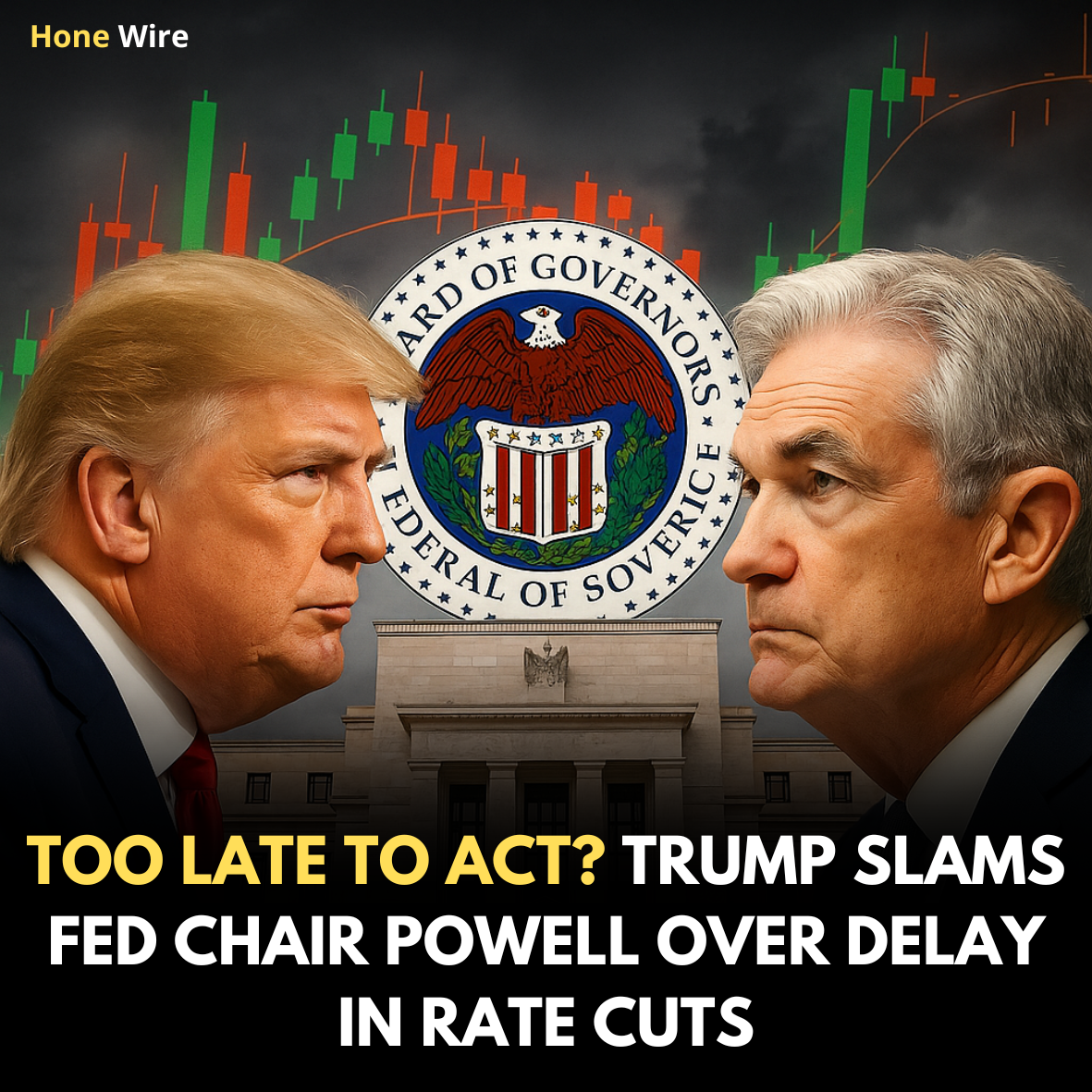Trump Urges Immediate Interest Rate Cuts as Europe Moves Ahead
In a recent and pointed statement, former U.S. President Donald J. Trump has intensified pressure on Federal Reserve Chair Jerome Powell to cut interest rates, accusing him of acting too slowly in the face of global economic shifts. Trump's demand comes amid reports that the European Central Bank (ECB) has already cut rates nine times a stark contrast to the Federal Reserve’s more cautious approach.
“Europe has reduced rates nine times already. We are late. Very late,” Trump said, criticizing Powell’s leadership. “If we don’t act now, we risk falling behind economically.”
A Clash of Economic Philosophies
The tension between Trump and Powell is not new. During his presidency, Trump frequently expressed dissatisfaction with the Fed’s monetary policies, especially when he felt interest rates were too high to support economic growth. The latest criticism underscores a renewed clash of ideologies Trump favoring aggressive rate cuts to stimulate the economy, while Powell remains committed to a data-driven, measured approach.
Jerome Powell, often dubbed “Too Late Powell” by his critics, has signaled the Fed’s caution as inflation remains a primary concern. While inflation has shown signs of easing, Powell emphasizes that prematurely slashing rates could reignite price instability.
“We’re watching inflation trends closely,” Powell said in a recent press conference. “Our decisions will be guided by data, not by external pressures.”
Global Monetary Race: Europe Takes the Lead
The European Central Bank's proactive stance in cutting interest rates is seen as a bid to stimulate economic activity across the Eurozone, particularly in response to sluggish growth, high debt levels, and signs of deflationary pressure. Analysts argue that Europe’s aggressive monetary easing may give it a competitive edge lower borrowing costs, higher consumer spending, and an export-friendly weak euro.
Trump and many market watchers worry that if the Fed continues to delay similar actions, the U.S. could face declining competitiveness, weakening investor sentiment, and a stronger dollar making American exports more expensive globally.
Market Reaction and Political Implications
Following Trump's remarks, markets showed signs of heightened volatility. Bond yields fluctuated and investors closely monitored the Fed's next moves, especially as the U.S. approaches a high-stakes presidential election in 2024.
Trump’s renewed involvement in monetary debate is also seen as a strategic political move. With inflation now less of a crisis than in recent years, he’s shifting his narrative toward economic momentum and global positioning a key campaign theme.
Analysts note that Powell’s decision-making is unlikely to be swayed directly by political rhetoric. However, pressure from influential figures like Trump adds another layer of complexity to an already delicate balancing act between inflation control and economic support.
Conclusion: Turning Point or More Delay?
Whether the Fed will heed Trump’s advice remains to be seen. Powell and the FOMC (Federal Open Market Committee) are expected to reassess the interest rate policy in their upcoming meetings, but significant rate cuts in the near term appear unlikely unless inflation trends dramatically change.
What’s clear, however, is that Trump is once again positioning himself as a vocal economic watchdog—and he's using global comparisons to highlight what he sees as Washington's missteps.

